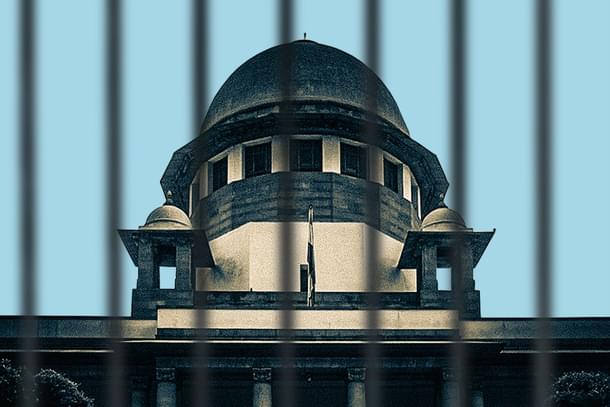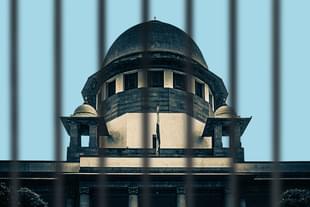Ideas
SC Knows Zero About Banking Moral Hazards; It Shouldn’t Be Messing With Covid Moratorium Issue
R Jagannathan
Jun 08, 2020, 01:23 PM | Updated 01:22 PM IST
Save & read from anywhere!
Bookmark stories for easy access on any device or the Swarajya app.


The Supreme Court is needlessly wandering into executive and regulatory domains by asking both the Reserve Bank of India (RBI) and the Finance Ministry to justify the non-waiver of interest on loan repayment moratoriums offered as a short-term sop during the Covid-19 lockdown.
A three-judge bench comprising justices Ashok Bhushan, Sanjay Kishan Kaul and M R Shah, hearing a public interest litigation (PIL) on the issue, noted that in challenging times, banks should not only offer moratoriums in repayment of loans, but also waive interest.
Though the court has not taken a final view, the very fact that it believes it should interfere in a matter that is better left to the banking regulator and the government is problematic. The last thing the court should do is impose some view in an economic issue over which it has no competence and will take no responsibility for ultimate outcomes.
One can disagree with the decision of the regulator, which is worried about the stability of the banking system, to allow banks to decide whether they want to waive interest on loans or not. But any waiver cannot come at the cost of banks alone; it has to be paid for by somebody, and that somebody is usually the taxpayer.
If government overborrows to offer subsidies to the borrower, and if the ultimate result is a further weakening of the credit system and possible inflation as the government’s own debt bloats, then the price will be paid not only by the taxpayer, but all citizens.
Quite aside from the point of the desirability of courts intervening in this matter, a few other realities need restating.
One, banks borrow from savers (ie, depositors) and lend to companies and individuals. At any point of time, there will always be more depositors than borrowers. So, any decision to favour borrowers will ultimately come from paying savers less. In other words, we want to favour the few over the overwhelming majority of customers of a bank.
Two, it may be good banking practice to give borrowers a reprieve when they are in dire need, but it is a moral hazard if it is presumed that the borrower must always be accommodated whenever he is in trouble.
The whole credit system will be at risk if there is a tacit or explicit assumption that borrowers should not worry about repayment. In this event, borrowers will borrow recklessly (as happened during the United Progressive Alliance or UPA regime, which pushed banks into a bad loans crisis and risk aversion). And when a bank goes bust, savers will be in trouble, or forced to expect a government bailout in order to get back their deposits.
Either way, we are creating a systemic problem where both savers and borrowers presume that there is no risk to their decisions – to put money in or borrow from a particular bank. And there is a stronger case to preserve depositors’ confidence than borrowers’ confidence, as there are not only more of them, but also they are key to the whole business of lending.
Three, trying to protect borrowers more than savers has another unintended outcome: it is about discriminating against the old and favouring the relatively young. Old people save, for they live from interest earnings. Younger people borrow, for they have to buy now and pay back over in the future.
If savers have to be hit by cutting interest rates (which is fine, if that is what is needed in a given market situation), and borrowers benefited by giving them waivers and subventions, you are essentially favouring one group over the other. The market may act unfairly to one set of customers or the other, but should policy interventions do the same?
Four, banks are in the business of intermediation. They have two sets of customers with partly conflicting interests. If one party to the intermediation is to be given relief, it can come only at the cost of the other. Should courts be intervening in a business model issue? It can be claimed that the taxpayer will ultimately pay, but what if taxpayers tomorrow file a PIL saying they should have a say in how their money is spent by government? Will the courts entertain that petition too?
The courts should know their limits. They should not meddle in things they know little about, and in which they can do more damage than good.
Jagannathan is former Editorial Director, Swarajya. He tweets at @TheJaggi.





